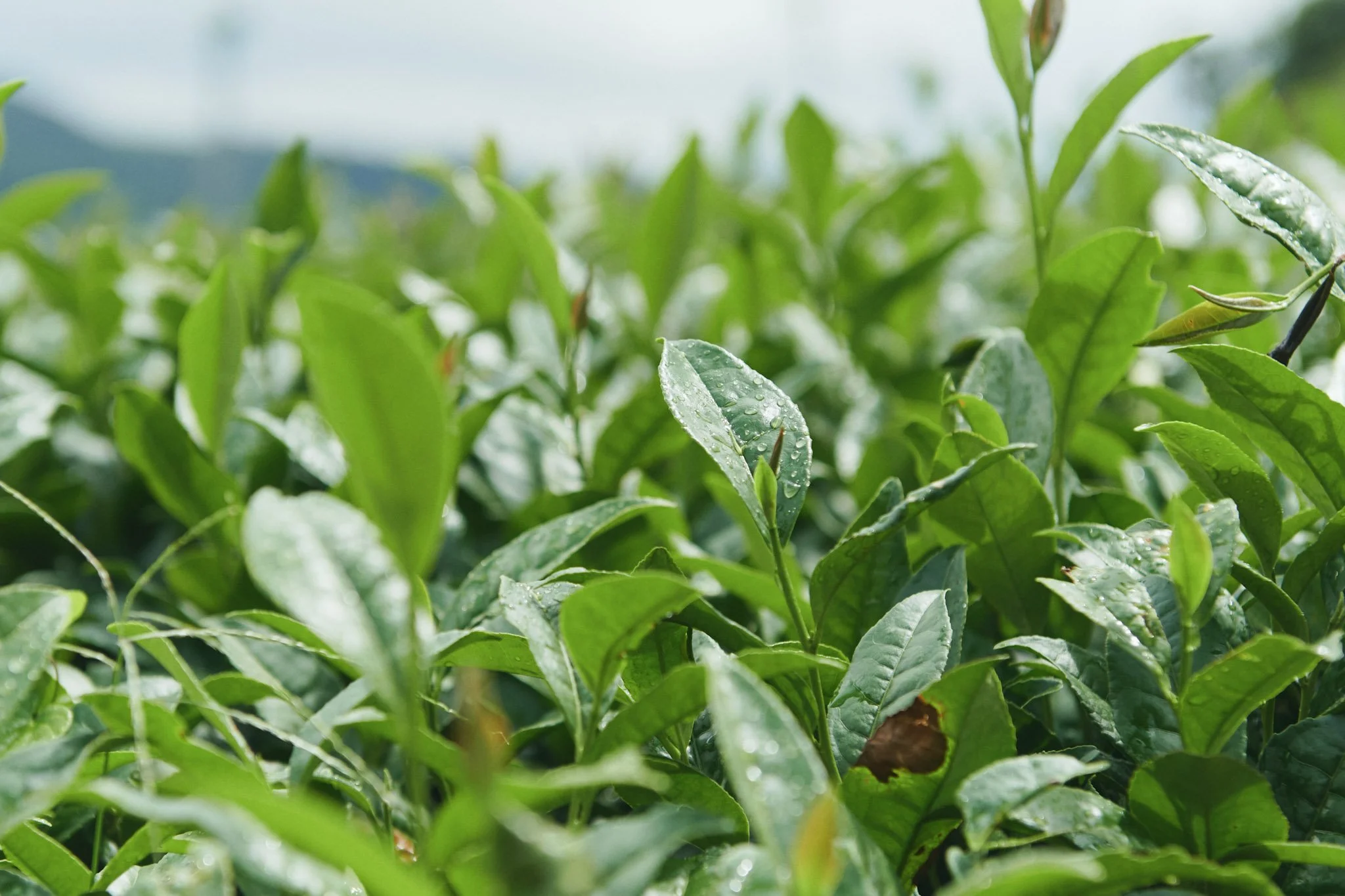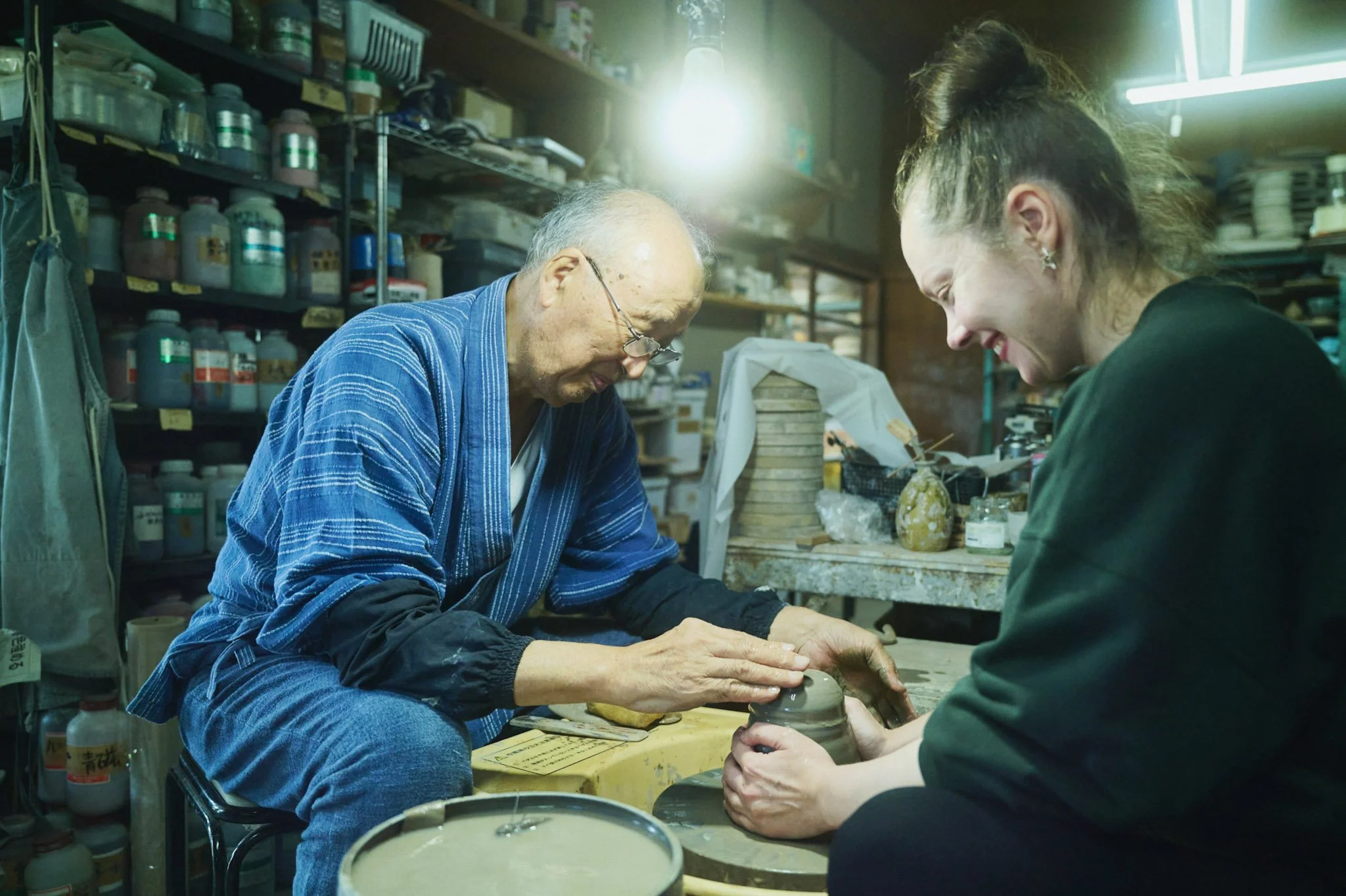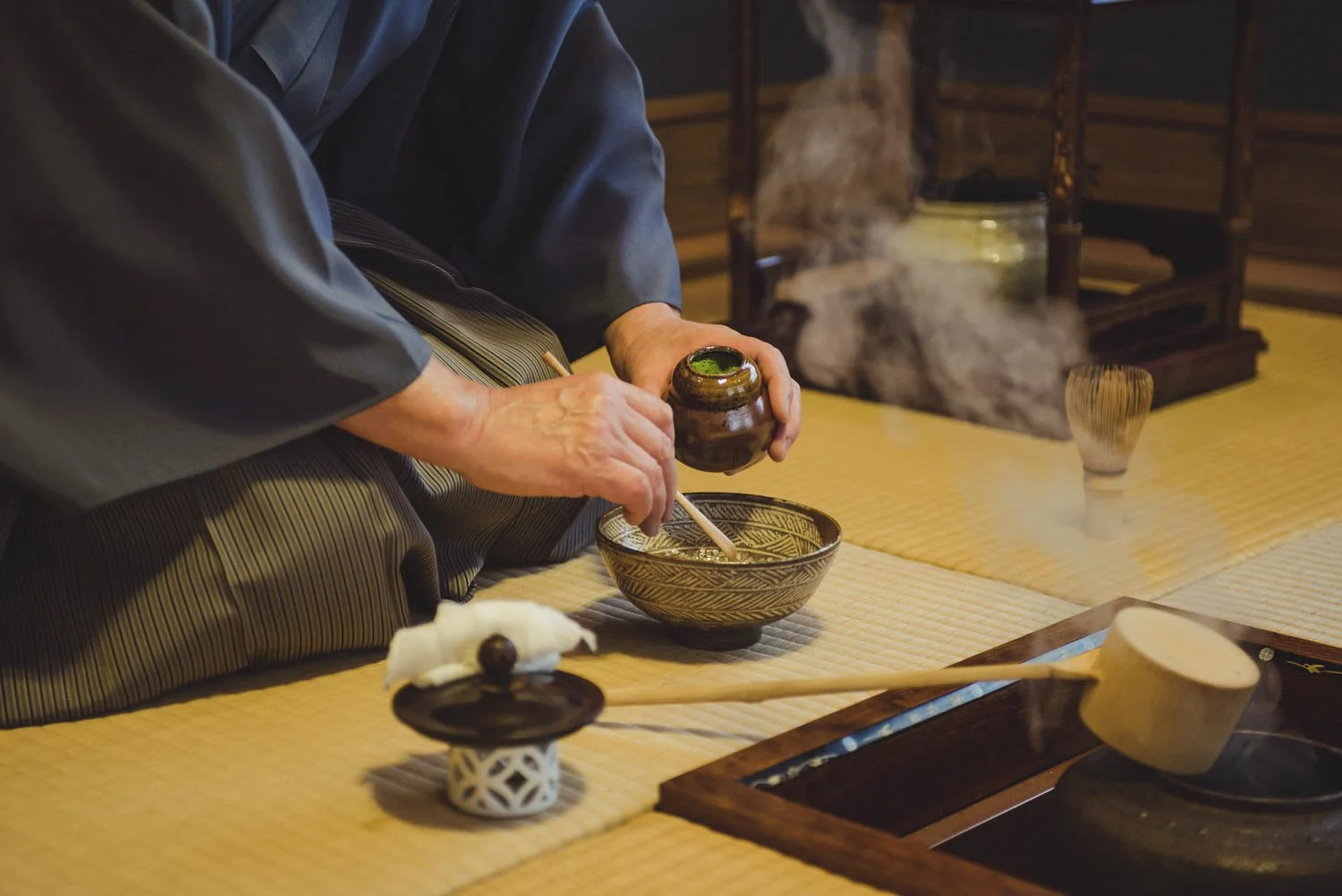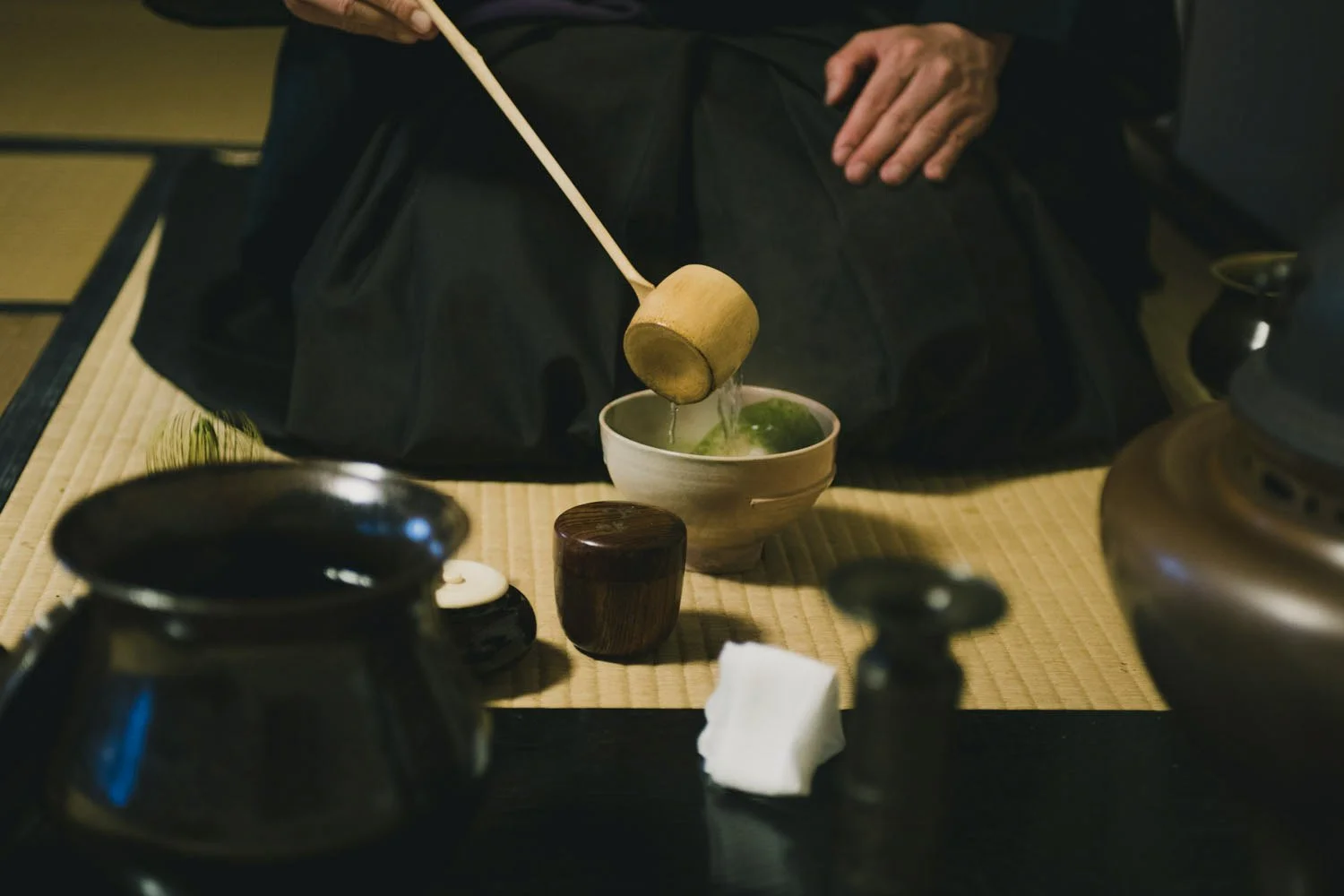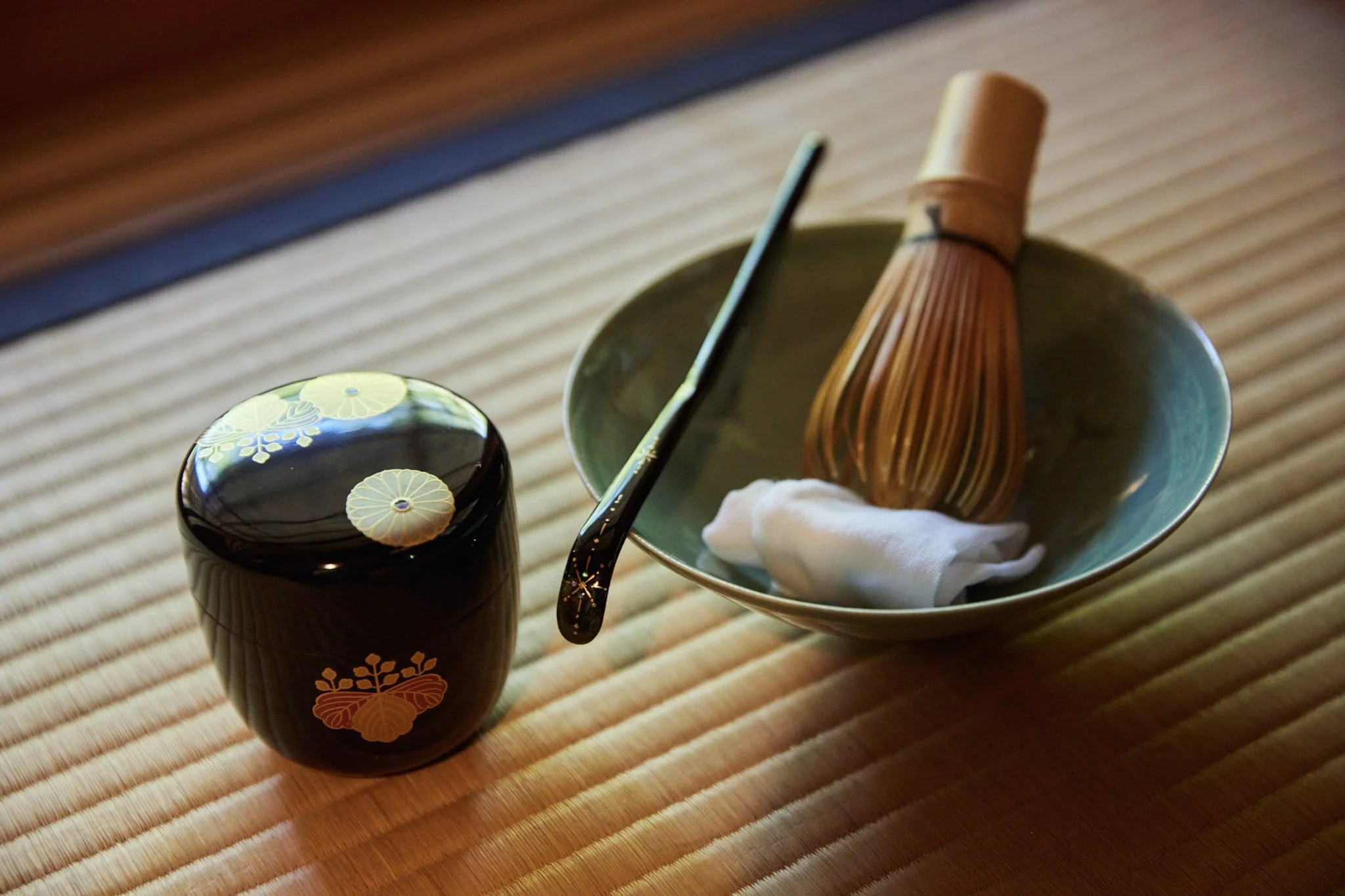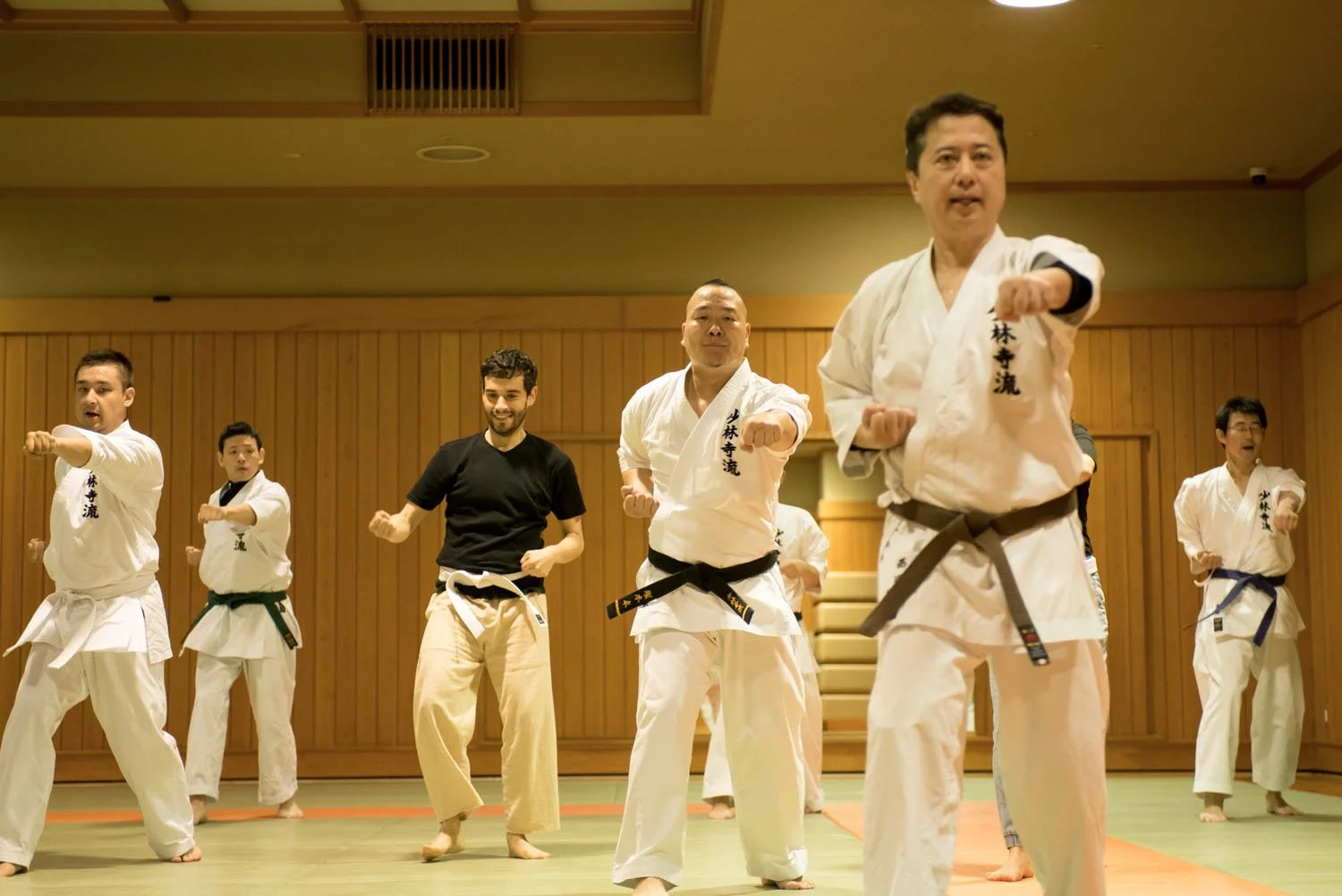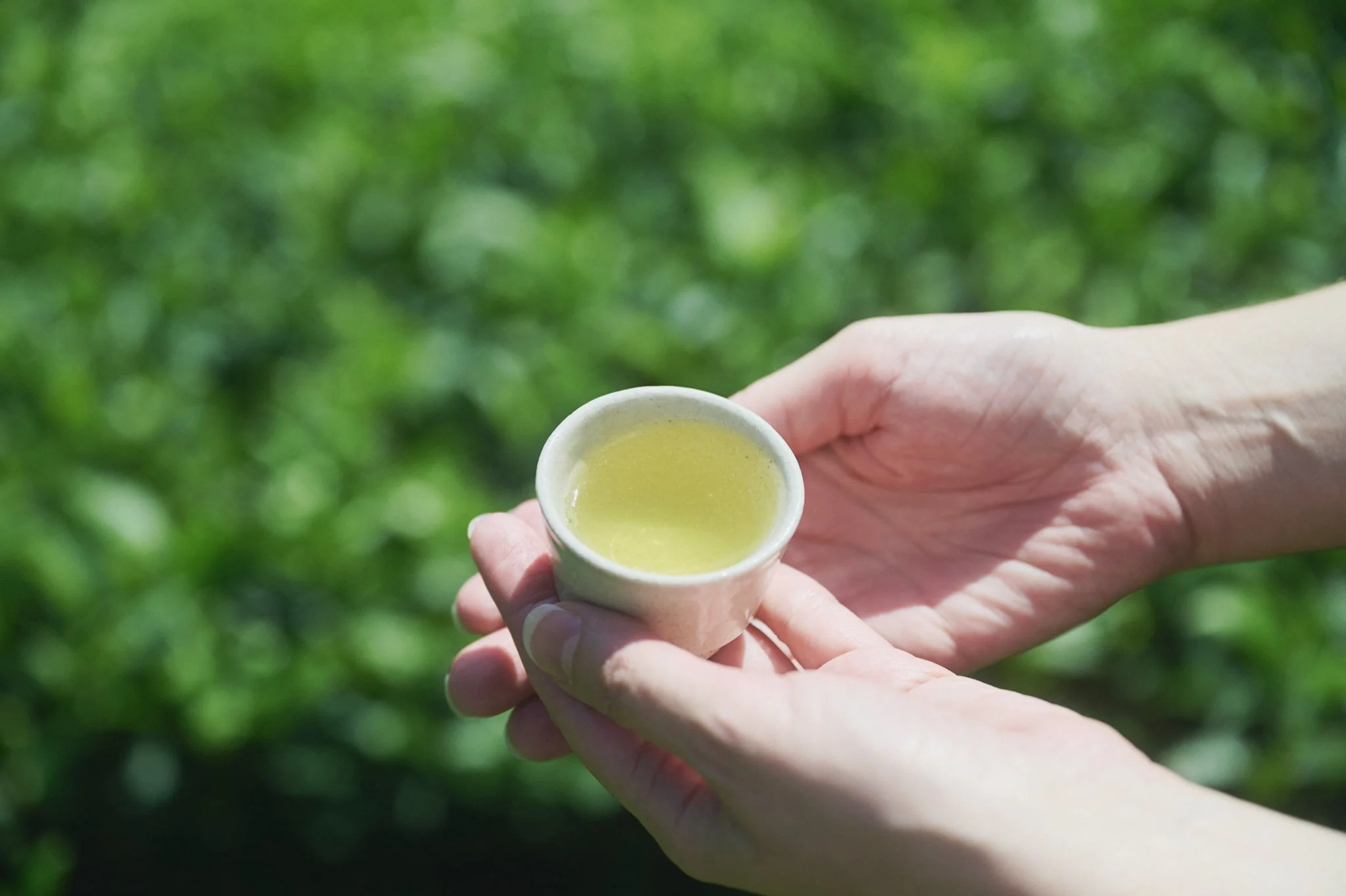
Taste Japan’s tea culture.
Japan’s tradition of tea starts over 1000 years in the past. Learn all the essentials about this ancient culinary art.
In this Guide:
Where to Enjoy Tea in Japan
The History of Tea in Japan
Tea Experiences in Tokyo, Kyoto, and More
Understanding Japanese Tea Ceremony
Tea’s Origins as Medicine and Meditation
Interview with a Kyushu Tea Field Master
Japanese Tea FAQs
From the masterful matcha fields of Uji, located just a short trip outside of Kyoto, to the seaside tea farms cultivating sencha in Sonogi, a coastal town in southern Japan, there’s no shortage of destinations for tea-enthusiasts to explore.
Visit these tea hotspots in Japan to learn more about tea, from field to cup, through masterclasses such as:
Tea Field Tour & Matcha Grinding: Uji, Kyoto
Yabunouchi Tea Ceremony: Kyoto
Where to Enjoy Tea in Japan
The History of Tea in Japan
How Tea Arrived to Japan
Tea first arrived in Japan as a medicine in the 8th century. Brought by Buddhist monks, most famously the monk Eichu, returning from studies in China, tea was consumed exclusively in Buddhist temples. There, it was used as an aid in meditation, helping monks to stay alert during sessions.
It wasn't until the 12th century that powdered green tea, or matcha, was introduced to Japanese society. The founder of the Japanese Rinzai Zen Buddhist sect, Eisai, began to infuse the vibrant tea powder in religious ceremonies, with matcha’s popularity spreading to aristocrats and members of the upper echelon as well.
How Tea Ceremony Started in Japan
No history of tea ceremony is complete without mentioning Sen no Rikyu. The founder of the modern form of tea ceremony still actively practiced in Japan today, Rikyu refined the hospitality and aesthetics behind sharing tea into an absolute art during the 16th century.
With Sen no Rikyu’s influence, tea rooms transitioned to more intimate spaces and prioritized the utilization of locally crafted ceramics, infusing philosophies like wabi-sabi (beauty in imperfection) and ichi-go ichi-e (one time, one meeting) into each ceremony.
This shift transformed tea ceremony into a ritual aimed at crafting a moment of pure hospitality, singular and wholly unique.
Japan Tea Experiences
Learn the rituals of tea ceremony from verified tea masters, stroll through the scenic tea fields cultivating Japan’s finest teas, and discover how tea is made, from roasting to brewing.
Whether you’re looking for cultural tea masterclasses offered directly in the city center or looking to venture into Japan’s scenic beauty, explore our selection of signature tea workshops and experiences.
Tea experiences in Japan
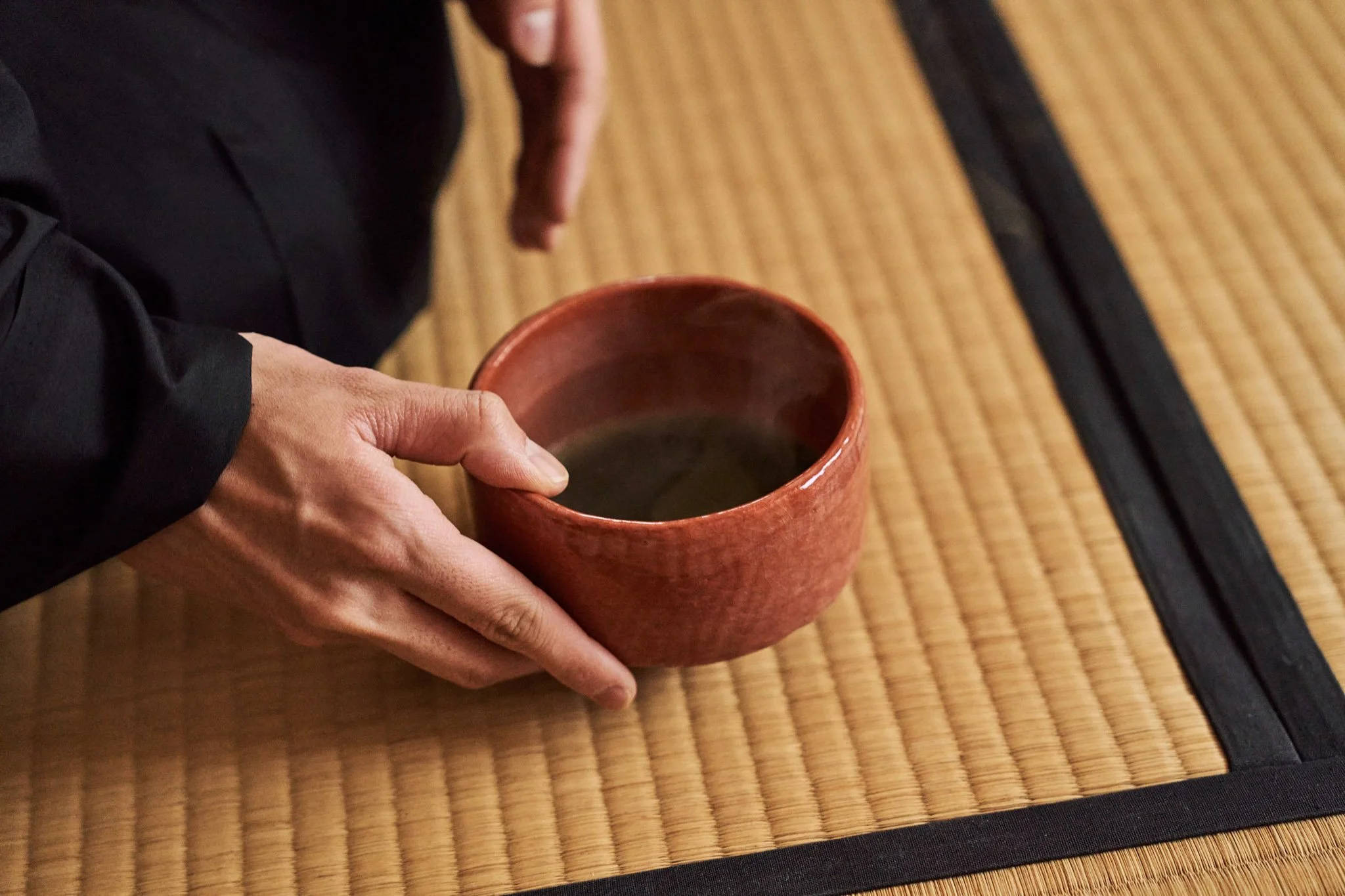
Understanding Japanese Tea Ceremony
The Start of Tea Ceremony: Zen Monks and Samurai Warriors
While the first formal mention of a tea ceremony was in the 8th century, hosted by Emperor Shomu, tea’s origins were in religion, first brought by Eichu and Kukai as a valuable medicine in 805, then by Eisai, the founder of Zen Buddhism, who imported the practice of powdered tea, or matcha, in the 12th century. Tea ceremony, according to our modern conceptions, evolved amidst a century of social turmoil, during the Sengoku (Warring States) Period. Tea rooms provided a space of simplicity and stillness, in contrast to the chaos of war. For military aristocracy, the wabi-cha style, which embodied rustic finishes and spiritual clarity, was far preferred to ornate embellishments common to the court style.
The Importance of Tea Utensils
Conversation between host and guests focuses less on tea, and more on teaware: the tea bowls marked by the hands of a master, elegant yet natural bamboo whisks, sturdy iron kettles, and lacquered tea caddies. Each object is chosen to suit the specific moment or day’s guest, taking into account aesthetic resonance and seasonal symbolism. The simplicity of the chashitsu tea room allows for attention to linger on the tea utensils and for the mastery involved in each item to shine.
Tea Ceremony Rooms and Ritual
Samurai, shaped by duty and discipline, found sanctuary in the tea room. Before entering, they removed swords and symbols of rank, establishing an area devoid of hierarchy where people of all standing could freely meet. Passing through the nijiriguchi, or crouching entrance, showed humility, but also was a way to ensure that swords could not pass freely.
Monks and tea masters, such as Kobori Enshu, were often the architects for tea huts, creating buildings that utilized natural materials found in the immediate surroundings, with interiors that featured subdued earth tones, woven mat ceilings, and an overwhelming atmosphere of tranquility fit to suit both meditative introspection and tea ceremony hospitality. This simplicity was in stark contrast to the earlier ostentation preferred by the imperial court.
Seasonality in Tea Cermony
Within the tea room and ceremony, space, light, and materials are carefully composed to emphasize the present moment. Seasonal awareness lies at the heart of every detail—from the wagashi confections and choice of tea bowl to the displays in the tokonoma, where ikebana arrangements, kakejiku hanging scrolls, and incense change with the seasons, uniting the atmosphere indoors with the natural world outside.
A Deeper Taste for Tea
Dive deeper into the unique culture and flavor of Japanese tea. Learn all about the history of tea in Japan, the relationship between tea and Buddhism, and even discover the stories behind some of Japan’s diligent tea masters.
Tea: From Medicine to Meditation
Discover the rich history, cultural significance, and timeless traditions of the Japanese tea ceremony, from its Zen Buddhist roots to its evolution into a cherished art form.
Interview with a Kyushu Tea Field Master
Discover how Koichi, a celebrated Japanese tea master, transforms centuries-old traditions into exceptional tea experiences that reflect the rich heritage of Nagasaki's Sonogi region.
Japanese Tea FAQs
-
Japan offers a wide range of tea, with the most common options including: sencha, matcha, hojicha, genmaicha, and bancha.
-
The proper brewing time for Japanese tea depends on the variety. For example, sencha should be brewed for 1-2 minutes between 70–80°C (160–175°F) while matcha powder should be whisked with water (70–80°C/160–175°F) in order to achieve the desired taste.
-
Japanese tea is healthy, containing a rich number of antioxidants that reduce inflammation and supports heart health. However, Japanese tea has caffeine, which can help improve concentration, but should also be consumed only in moderate amounts.
-
Most of Japanese tea is made from green tea (including sencha, matcha, and bancha). However, other types of Japanese tea are not made from green tea. Those include mugicha (barley tea) and kuromamecha (black soybean tea), among others.


